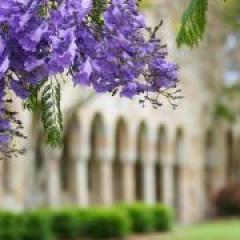Environmental legacies of imperial agricultural systems in ancient Anatolia
Abstract
Agriculture mediates human interactions with environments and provides the primary avenue through which human societies adapt to environmental change. Such adaptations are constrained, however, by both economic pressures and histories of environmental change, which render certain agricultural strategies desirable and others unproductive. Here I explore long-term agricultural and environmental change over the course of successive imperial periods, the Hittite through Roman empires, at the site of Gordion in central Anatolia. The application of two distinct theoretical perspectives, niche construction and resilience thinking, to a rich body of environmental archaeological data helps us trace long-term entanglements between people and landscapes. I explore how these theoretical perspectives conflict, as well as complement one another, in reconstructing environmental change in the past. I conclude with a brief overview of the new collaborative regional project that stems from this work.
About the presenter
John M. Marston is Associate Professor of Anthropology and Program Director of Archaeology at Boston University, where he directs the Environmental Archaeology Laboratory. He studies the long-term sustainability of agriculture and land use, with a focus on ancient societies of the Mediterranean and western and central Asia. He is currently a Fulbright Scholar at the University of Queensland.
Marston’s recent research has been funded by the US National Science Foundation, Social Sciences and Humanities Research Council of Canada, American Research Institute in Turkey, and American Philosophical Society. He is the author of Agricultural Sustainability and Environmental Change at Ancient Gordion (U Penn Museum Press, 2017), which was the recipient of the 2019 James R. Wiseman Book Award from the Archaeological Institute of America. His current field projects include ongoing work at multiple urban centers in Turkey and Israel, as well as recent excavations in central Asia.
About Archaeology Working Papers
The Working Papers in Archaeology seminar series provides a forum for dissemination of archaeological research and ideas amongst UQ archaeology students and staff. All students are invited to attend the series and postgraduate students, from honours upwards, are invited to present their research. The aim is to provide opportunities for students, staff and those from outside UQ, to present and discuss their work in an informal environment. It is hoped that anyone interested in current archaeological directions, both within and outside the School and University, will be able to attend and contribute to the series.


